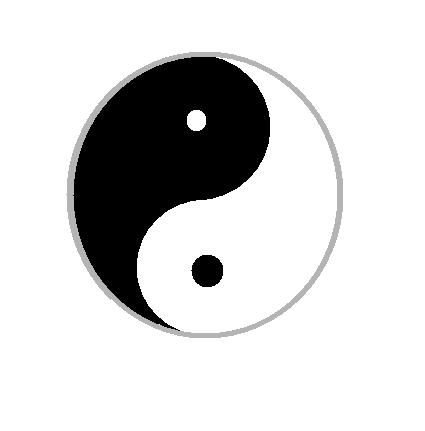Laozi's Dao De Jing 54-56 (老子道德經 54-56) from Administrator's blog

He who knows (the Tao) does not (care to) speak (about it); he who is (ever ready to) speak about it does not know it. (Such an one) cannot be treated familiarly or distantly; he is beyond all consideration of profit or injury; of nobility or meanness:—he is the noblest man under heaven.
第五十四章
善建者不拔,善抱者不脫,子孫以祭祀不輟。修之于身,其德乃真﹔修之 于家,其德乃餘﹔修之于鄉,其德乃長﹔修之于國,其德乃豐﹔修之于天 下,其德乃普。故以身觀身,以家觀家,以鄉觀鄉,以國觀國,以天下觀 天下。吾何以知天下然哉?以此。
Chapter 54
1. What (Tao's) skilful planter plants Can never be uptorn; What his skilful arms enfold, From him can ne'er be borne. Sons shall bring in lengthening line, Sacrifices to his shrine.
2. Tao when nursed within one's self, His vigour will make true; And where the family it rules What riches will accrue! The neighbourhood where it prevails In thriving will abound; And when 'tis seen throughout the state, Good fortune will be found. Employ it the kingdom o'er, And men thrive all around.
3. In this way the effect will be seen in the person, by the observation of different cases; in the family; in the neighbourhood; in the state; and in the kingdom. 4. How do I know that this effect is sure to hold thus all under the sky? By this (method of observation).
第五十五章
含「德」之厚,比于赤子。毒蟲不螫,猛獸不據,攫鳥不搏。骨弱筋柔而 握固。未知牝牡之合而朘作,精之至也。終日號而不嗄,和之至也。知和 曰「常」,知常曰「明」。益生曰「祥」。心使氣曰「強」。物壯則老, 謂之不道,不道早已。
Chapter 55
1. He who has in himself abundantly the attributes (of the Tao) is like an infant. Poisonous insects will not sting him; fierce beasts will not seize him; birds of prey will not strike him. 2. (The infant's) bones are weak and its sinews soft, but yet its grasp is firm. It knows not yet the union of male and female, and yet its virile member may be excited;—showing the perfection of its physical essence. All day long it will cry without its throat becoming hoarse;—showing the harmony (in its constitution). 3. To him by whom this harmony is known, (The secret of) the unchanging (Tao) is shown, And in the knowledge wisdom finds its throne. All life-increasing arts to evil turn; Where the mind makes the vital breath to burn, (False) is the strength, (and o'er it we should mourn.) 4. When things have become strong, they (then) become old, which may be said to be contrary to the Tao. Whatever is contrary to the Tao soon ends.
第五十六章
知者不言,言者不知。塞其兌,閉其門,挫其銳,解其紛,和其光,同其 塵,是謂「玄同」。故不可得而親,不可得而疏﹔不可得而利,不可得而 害﹔不可得而貴,不可得而賤。故為天下貴。
Chapter 56
1. He who knows (the Tao) does not (care to) speak (about it); he who is (ever ready to) speak about it does not know it. 2. He (who knows it) will keep his mouth shut and close the portals (of his nostrils). He will blunt his sharp points and unravel the complications of things; he will attemper his brightness, and bring himself into agreement with the obscurity (of others). This is called 'the Mysterious Agreement.' 3. (Such an one) cannot be treated familiarly or distantly; he is beyond all consideration of profit or injury; of nobility or meanness:—he is the noblest man under heaven.

The Wall